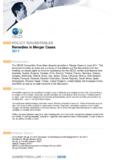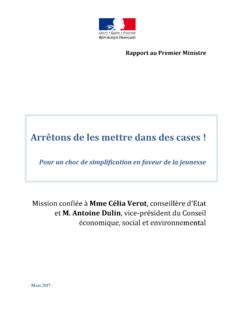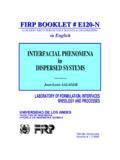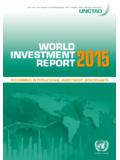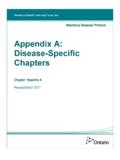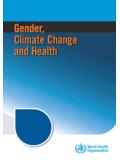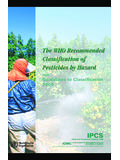Transcription of GUIDELINES FOR LAWYERS ACTING IN CASES …
1 GUIDELINES FOR LAWYERS ACTING IN CASES INVOLVING CLAIMS OF ABORIGINAL RESIDENTIAL SCHOOL ABUSE Preamble These GUIDELINES are provided as a tool primarily to assist members of the Law Society of Upper Canada who act for claimants in CASES involving Indian residential schools ( the residential schools ). While the word Indian is the title used by government and in laws or other official documents to refer to the Aboriginal people of Canada, the term Aboriginal will be used in the context of these GUIDELINES . The GUIDELINES were prepared in the context of the Aboriginal community=s unique experience and history with the residential schools across Canada. The GUIDELINES reflect a response to calls from the Assembly of First Nations, Rotiio> taties Aboriginal Advisory Group, the Law Commission of Canada, and the Canadian Bar Association for law societies to implement safeguards for Aboriginal claimants engaged in legal processes.
2 These GUIDELINES are in keeping with the spirit and letter of the Rules of Professional Conduct (Athe In particular, rule (1)(b) recognizes that LAWYERS have a special responsibility to recognize the diversity of the Ontario community, to protect the dignity of individuals, and to respect human rights law in force in Ontario. While these GUIDELINES address issues relating specifically to claimants in legal matters involving the schools, the principles in the GUIDELINES may apply to LAWYERS ACTING in CASES involving other claims of institutional abuse or other vulnerable clients. The GUIDELINES also provide guidance of a general nature, which LAWYERS ACTING on behalf of individual defendants, churches or government will find useful in their representations. The GUIDELINES , advisory in nature, are meant to be educational and should be read in conjunction with the Rules.)
3 A lawyer will not be subject to discipline by the Law Society for a breach of the GUIDELINES , but may be subject to discipline for a breach of the standards of professional conduct found in the Rules, some of which are referenced in these GUIDELINES . The GUIDELINES have been created to identify appropriate practices in the area of residential school litigation with a view to ensuring the competence and professional conduct of the Ontario Bar in providing legal services and non-discriminatory access to legal services in Ontario for claimants in these actions. 1In these GUIDELINES , words such as respect and healing are used throughout. These words have significant meaning in an Aboriginal world-view. For the purposes of these GUIDELINES , respect reflects either an acceptance of the importance of the issue referred to, or polite, honourable, kind and careful consideration of the person referred to.
4 Healing refers to the claimant s emotional, psychological, physical and spiritual journey towards health and wellness in his or her life, and in his or her relationships with family and community. Background information on the residential school experience and a list of resources for LAWYERS ACTING for claimants may be obtained through the Society s website ( ) or through the Society s Equity Initiatives or Practice Advisory areas. General 1. Given the specific knowledge required to responsibly serve the legal needs of Aboriginal Peoples or represent other parties to these claims, the special nature of residential school CASES , and the various legal processes that exist in those CASES , LAWYERS should ensure they are competent to act prior to accepting clients in these matters. Rule provides a definition of a competent lawyer . Rule (h) states that being a competent lawyer includes recognizing limitations in one s ability to handle a matter, or some aspect of it, and taking steps to ensure the client is appropriately served.
5 Competence also involves performing all functions conscientiously, diligently, and in a timely and cost-effective manner (rule (e)). LAWYERS should avoid unnecessary delay and encourage clients to pursue expeditious resolution of these claims, with particular care to avoid delays in CASES involving ill or aging claimants. 2. Recognizing that this type of litigation creates additional demands for LAWYERS and their staff, LAWYERS should be aware of the possible need for training for law office personnel to effectively manage the practice and maintain competent legal service to clients. LAWYERS ACTING in residential school CASES are encouraged to ensure that employee assistance programs and counseling are available for law office LAWYERS and staff. 3. LAWYERS should recognize and respect that claimants may be seriously damaged from their experiences, which may include cultural damages resulting from being cut off from their own society, culture and traditions and removed from their 2parents.
6 These experiences may be aggravated by claimants having to relive their childhood abuse, and healing may be a necessary component of any real settlement for claimants. Accordingly, LAWYERS should take into account that any redress provided to claimants may include a broader range beyond the monetary. LAWYERS should endeavour to understand and respect claimants cultural roots, customs and traditions. Guidance for Claimants Counsel 4. LAWYERS should recognize and respect the unique nature of residential school CASES and appreciate claimants need for healing in the legal process. LAWYERS should recognize and respect the special nature of claimants CASES and should assist in facilitating their client s healing process through, where possible: a) identifying and providing referrals to appropriate community resources, including counseling resources, to assist the client; b) referring their client to treatment programs, if appropriate; c) recognizing and respecting the need for the client to develop a personal support network.
7 LAWYERS should review these options with the client at the beginning of and throughout the retainer. 5. LAWYERS should recognize and respect that residential school CASES place unique demands on the lawyer and other law office staff by virtue of the complicated legal issues, the emotional nature of such CASES , the additional amount of time and resources required for each case , the special needs of claimants, the potential need for crisis intervention and management, and the lawyer s role in facilitating the claimant s healing process. LAWYERS should recognize and respect that these demands may place a practical limit on the number of CASES which they can competently and responsibly take on at any one time. Lawyer must also remember that they must act consistent with their responsibilities to their clients. 6. If LAWYERS pursue claims through a class action, LAWYERS should ensure that the claimants understand the nature of a class action and the need for a representative group of claimants from whom the lawyer will take instructions.
8 The lawyer should also implement appropriate information distribution systems for the benefit of all claimants. 7. LAWYERS should appreciate the need for the utmost sensitivity in dealings with claimants. LAWYERS should ensure that the methods they employ in making legal 3services available to claimants are culturally appropriate and comply with Rule , in particular Rule (2)(c) which prohibits unconscionable or exploitive means in offering legal services to vulnerable persons or persons who have suffered a traumatic experience and have not yet had a chance to recover. LAWYERS should make reasonable efforts to ensure that initial communications offering legal services to claimants are welcomed and respectful. Care should be taken to ensure that these communications will not result in further trauma to the claimant. Subject to protecting and advising the client with respect to solicitor and client privilege, LAWYERS may wish to consider having community support people available at the initial meeting with the client and should recognize that claimants may require support people to be present throughout various stages of the legal retainer.
9 8. LAWYERS should ensure that advertising aimed at soliciting claimants is in good taste, is not false or misleading, and complies with Rule 9. LAWYERS ACTING on behalf of claimants must comply with Rule and ensure that all fees and disbursements are clearly communicated to the claimant in a way that is understandable. Given the unique nature of residential school CASES and needs of claimants, LAWYERS should make reasonable efforts to ensure that there is clear and understandable communication regarding the lawyer and client relationship, the legal process including settlement and alternative dispute resolution processes, responsibilities of lawyer and client, and fees and disbursements. Accordingly, LAWYERS should, whenever possible, meet in person with the claimant before establishing a lawyer and client relationship or accepting retainers from residential school claimants.
10 10. LAWYERS may enter into an arrangement with a claimant for a contingent fee provided the arrangement is in accordance with rules (3), (4) and (5). 11. LAWYERS ACTING for claimants should ensure that they are accessible to claimants for whom they are ACTING and that clear lines of communication exist with the claimants. LAWYERS should recognize and respect the special communication needs that some claimants may have including language barriers, cultural barriers, and limited access to telephone service. LAWYERS may be required to consider the services of interpreters, as necessary. LAWYERS written communications to claimants should be in an understandable and accessible format and LAWYERS should make reasonable efforts to follow up to ensure client comprehension. Rule defines a competent lawyer to be one who communicates at all stages of the matter in a timely and effective manner that is appropriate to the age and 4abilities of the client, and performs all functions conscientiously, diligently, and in a timely and cost-effective manner.
